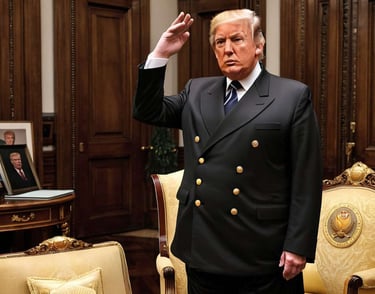Donald Trump and Dictatorial Aspirations: The Implications
Recently, President Donald Trump made headlines by suggesting a rather startling concept: the idea that a war might allow him to declare "no more elections,"
DEMOCRACYTRUMP


When Words Become Alarm Bells
Recently, President Donald Trump made headlines by suggesting a rather startling concept: the idea that a war might allow him to declare "no more elections," effectively redrawing the rules of democracy in America. In what can only be described as both audacious and alarming, this proclamation has ignited conversations about the fragility of our democratic processes. In his own words, Trump claimed that "a lot of people" are in favor of a dictator. Conveniently, it seems that he might be one of those advocates.
The Dictatorship Dilemma
Now, it’s important to dissect what implications such sentiments carry. By asserting that he believes many would prefer a dictatorship, Trump is not merely testing a theory; he is vocalizing a desire that he believes exists within the electorate. This raises a plethora of questions regarding not just loyalty, but also about the core values that Americans hold dear. If the public is indeed swayed toward authoritarianism, what happens to the foundational principles of democracy?
The Silent Majority or the Vocal Minority?
This interface of language and intent deserves scrutiny. Did Trump just articulate the "quiet part" that many were reluctant to say aloud? The ramifications of such a statement are significant. To think that a former leader considers the onset of war as an operational strategy to maintain power reveals a chilling perspective on governance. As citizens, it is critical to remain vigilant against such ideologies and to ensure that democracy, with all its imperfections, is upheld even against the backdrop of such formidable declarations.
AI Generated Image